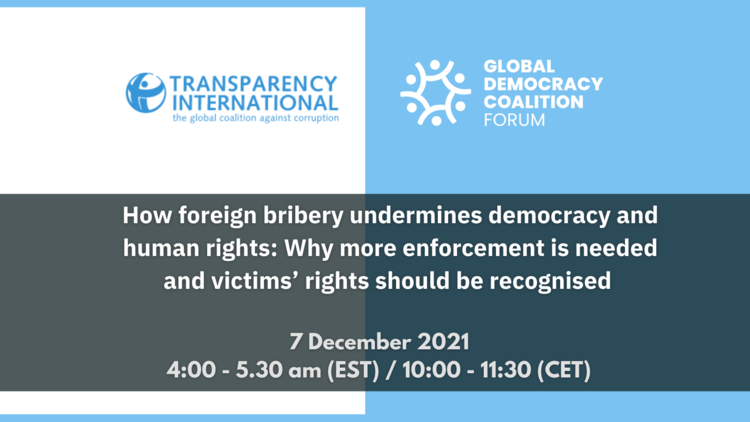This event focused on the negative impact of foreign bribery on democracy and human rights and the need to remedy the harm to the victims. For too long, the argument for curbing foreign bribery has focused on its distortion of international competitive conditions and on achieving a level playing field for international business. Cross-border bribery does affect competition, but it also harms the economy, state institutions, public services and public health and safety in the countries where the bribes are paid. It is the people of those countries who pay the price when multinational companies use bribery to obtain public contracts and licenses or to escape regulation and taxation of their activities. The damage caused is rarely addressed in foreign bribery enforcement proceedings. The panel presented some of the data on enforcement, examples of the harm caused by foreign corrupt practices and proposals for how the harm to victims should be recognised and compensated in foreign bribery proceedings.
AGENDA
Moderator: Serena Lillywhite, Chief Executive Officer, Transparency International Australia
DISCUSSION PANEL
Drago Kos, Chair of the OECD Working Group on Bribery
Anita Ramasastry, Chair of the UN Working Group on Business and Human Rights
Edson Cortez, Executive Director, Centro de Integridade Publica (TI Mozambique)
Sue Hawley, Executive Director, Spotlight on Corruption, UK
Caroline Goussé, Legal adviser, French Ministry of Foreign Affairs
Juanita Olaya, Chair of the UNCAC Coalition Working Group on Victims of Corruption

